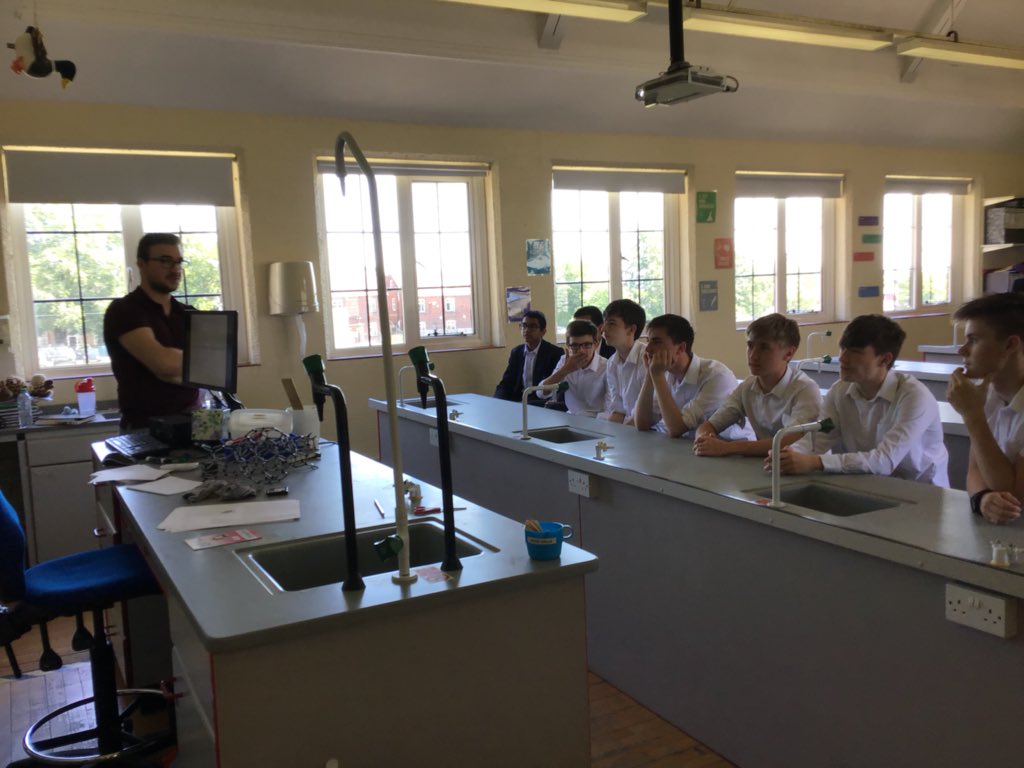We started by taking two Y12 chemistry classes and delivering short talks covering our university experiences from undergraduate through to current PhD life. This included an overview of our current research and Masters’ projects to give the students a flavour of the different areas of chemistry out there. Additionally it enabled them to understand that your Masters’ research does not necessarily have to dictate your PhD research projects. This led on to an engaging Q&A session covering everything from the commercial potential of graphene to how to decide which halls to apply to at a university!
Michael and Kelly then took a Y8 class through two exciting activities: the class was split into two groups which rotated between a mechanical exfoliation of graphene practical, allowing students to prepare their own single layer graphene flakes and view them under an optical microscope, and an interactive talk about graphene and transmission electron microscopy (TEM) using a specially designed TEM tablet app helping the students to understand the length scale of the work we undertake. Meanwhile, I took three high achieving Y12 students and ran a university admissions workshop, advising on everything from personal statements and interview tips to academic workload and university life.
Finally, we split a Y10 class into three groups and took them through a circuit of three activities. Each group had the opportunity to (i) mechanically exfoliate their own graphene flakes; (ii) hear a talk about our backgrounds as PhD researchers and how we got to where we are today and (iii) participate in an interactive talk about nanomaterials and graphene, complete with a host of videos of commercial examples of ‘smart’ materials. In each activity the students were well engaged and encouraged to ask as many questions as they could which led to some thoroughly enjoyable discussions!
Overall the day was a great success and was enjoyed by ourselves and the students alike! Our thanks go to Bolton School for hosting and allowing the opportunity to turn young students towards the sciences.
Richard Stevenson

 RSS Feed
RSS Feed